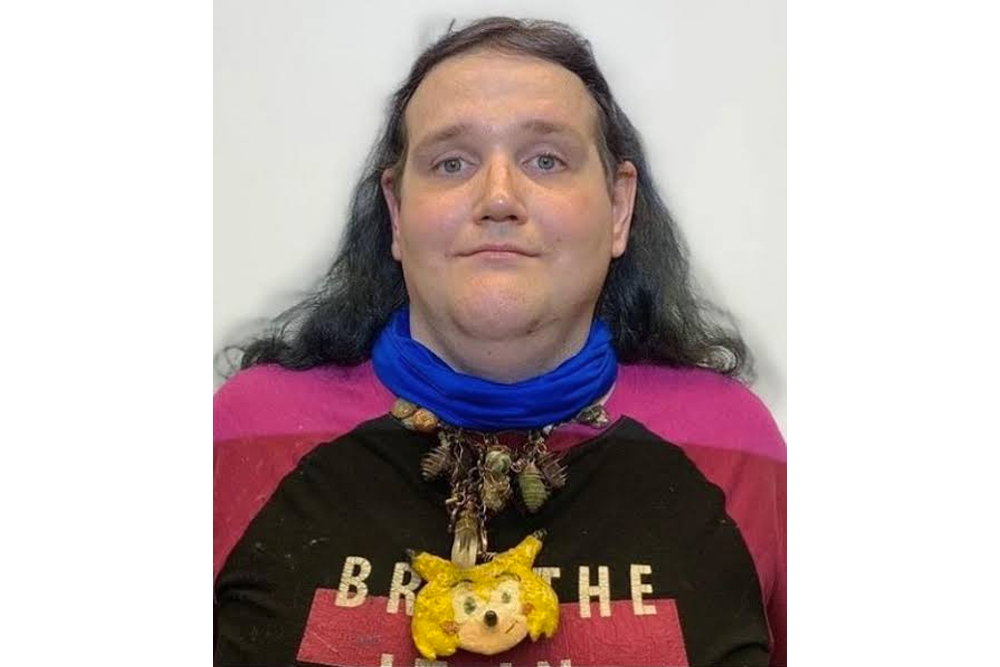Summarizing the tale of Christian Weston Chandler in a paragraph is like trying to squeeze an octopus into a bottle. You can’t. Chris is known for being the ‘most documented person on the internet’. A biographical documentary on YouTube has 59 episodes, all 40 minutes long, which add up to over 40 hours footage.
Imagine that there was a remake of The Truman Show, except that instead of being a fairly functional married insurance broker, Truman Burbank was a mentally ill aspiring cartoonist who lived with his aged mom. Do you get the picture?
Well, not any more. Chandler, who claims to be transgender and now goes by Christine, has been arrested after appearing to admit in online conversations to raping said aged mom, and faces up to 10 years in prison. This, if Chandler loses access to the internet, could be an exceptionally sordid end to an already sordid tale. Suddenly, everyone from Newsweek to England’s Daily Mirror is reporting on Chris. An entire subculture has burst into the light.
‘Chris Chan’ achieved micro-fame on the internet with the cartoon Sonichu. A mash-up of Sonic the Hedgehog and Pokémon, its incompetence was so astonishing that you had to marvel at it in a manner that you never would if it had been drawn with the faintest skill. Still, it was only when the artist began weaving their severely autistic, chronically lovelorn personal life into the tale that the cartoon took off.
Specifically it took off on dark online fora where anonymous young men collected to feed their morbid curiosity and appetite for chaos. Soon, Chris Chan had a page on Encyclopedia Dramatica — the scabrous, scurrilous Wikipedia for the underbelly of the internet.
Chris Chan was in a bind. He hated the attention of ‘the trolls’, but he loved attention and the trolls were the only people giving it to him. So, Chris continued drawing Sonichu and created YouTube videos offering colorful opinions on homosexuals and women. The search for a ‘boyfriend-free girl’ occupied much of his time, and led to a considerable amount of distress for the girls who took his fancy. At other times, ‘the trolls’ pretended to be girls, encouraging Chris to think that they were in a relationship.
You could tell a million stories about the mutually deranged behavior of Chris and his followers — all of it gleefully and painstakingly documented. There was the time Chris painted an ‘attraction sign’ which advertised his desire for a ‘cute female companion’ who was white and did not smoke. The dean of his college forbade Chris from displaying it, prompting her appearance in Sonichu as a witch. Then there was the time Chris entered GameStop and maced employees to protest a redesign of Sonic.
A whole universe expanded around the sad life of this unstable Virginian. Indeed, Chris defined a genre. His personal encyclopedia, CWCwiki, gave birth to Kiwi Farms — a website devoted to following ‘lolcows’, or insane, eccentric and obnoxious people who could be ‘milked’ for entertainment.
This can be entertaining. I can’t tell you about the ‘attraction sign’ and pretend not to find it funny. Doing so would be like claiming you were watching a porn film ‘solely for educational purposes’. But as well as being cruel, which is almost too obvious to note, it makes me wonder how much eccentricities feed off, and then are fattened by, attention. Chris, as an extreme example, would not have been a healthy person with or without the internet — but the excitement and anxieties of e-fame may have exacerbated pre-existing dysfunction.
Of course, milking lolcows is the rougher, edgier and more obscure indie music to the stadium rock that is the mainstream obsession with celebrities and their aspirational cousins in the realms of reality television or ‘influencers’. TMZ is following the downward spiral of Bam Margera as closely as Kiwi Farms, and as much as everybody wants to ‘Free Britney’ now, a lot of people made a lot of money when she was shaving her head and swinging an umbrella. What has changed is that the internet has made it possible for obscure people’s lives to enter the public domain. Vulnerable people would be wise to keep their distance, or to be kept there. Social media can chew them up and spit them out as entertainment.
What attracts people to morbid cases such as this? Much of it is primal. What makes us want to look at a street fight or a road accident? Who knows. But we do. Watching people’s lives spiral out of control can also make people feel better about their own. ‘Chris is such a fail,’ writes one YouTube commenter, ‘That you can look at him and think, “Well, my life sucks but at least I’m not Chris Chan.”’ Finally, in an era immersed in ‘decline’ narratives, following a wild lolcow or a deranged celebrity can be a means of exploring the alleged pathologies of our age in miniature. Presently, for example, there is a heated debate about whether Chris’s self-identification as a woman makes assignment to a women’s prison appropriate. God help the other inmates.
‘Looking back,’ asks a poster on Kiwi Farms, ‘did Chris deserve the bullying?’ ‘Deserves got nothing to do with it,’ another replies, ‘it was funny.’


















